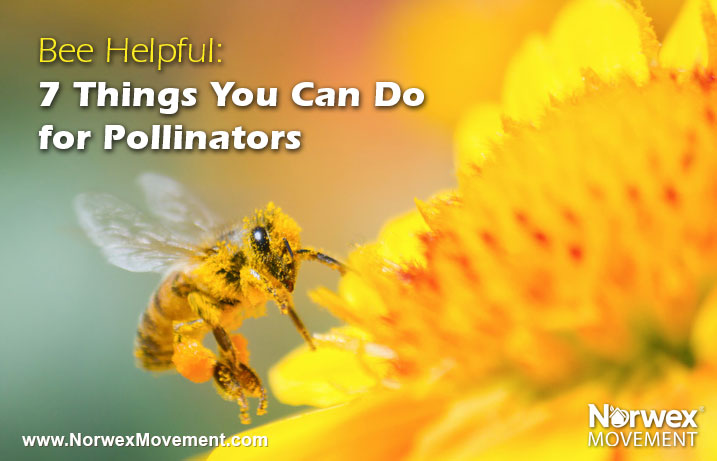

Summertime is a good time to remember our friends the pollinators. Hopefully they are hard at their important work this time of year, buzzing from here to there, fertilizing plants and making honey.
We say “hopefully” because as we’ve reported in 2013 and again last year, bees in particular have suffered from a condition known as Colony Collapse Disorder (CCD). CCD is a phenomenon that appears to affect adult honeybees’ ability to navigate. They simply vanish from their colonies, leaving their hives in search of pollen never to return.
Although the exact cause of CCD is not known, multiple factors have been shown to impact the collapse of bee colonies—including everything from mites, diseases and poor nutrition to pollution, weather and pesticides.
Fortunately, recent data indicates that CCD may be on the decline. According to the U.S. Environmental Protection Agency (EPA), while the number of beehives lost during the winter months of 2014 – 2015 remains somewhat high, reported cases of CCD have declined substantially over the last five years.
While this is good news, bees and other pollinators continue to need our help.
Resources:
A friend of mine from high school and her husband are bee keepers. I always use raw honey and have many organic pollinator plants in my garden. I never thought of the bird bath idea….I’m going to do that!! Thanks!
I have heard that eating honey local to your city helps with allergies… and, if you do come across a swarm on your property, call a local beekeeper to come remove it for you – many will do so as long as they can take the swarm home with them 🙂
That’s good to know! Thanks, Angie.
CCD has been shown to occur in hives that are used to pollinate fields where the seeds are either GMO or treated with a systemic pesticide. It might take a couple of generations or more for the colony to collapse. Hives that have been no where near these types of fields have shown no signs of CCD.
We ALWAYS purchase local raw honey–it’s so much better and helps with our seasonal allergies! My family has been working on planting more bee-friendly flowers around our home in the past few years, and I love the idea of planting specific herbs that bees like as well!
I also like the different infusions that local honey makers create!
I just heard that honey on a bee sting will ease the sting and reduce swelling!
How do we stop pesticide/herbicide use and GMO foods from being produced? I think that is where we, as a global community must start.
I love honey from local bee keepers! I have been planting flowers that attract bees and butterflies to try and help increase the population. I loved the DIY Seed Bombs. I will definitely will be making those next year with the kids
I found a local beekeeper that raises bees naturally on his organic farm, and the majority of his bees are local swarms that he rescued from exterminators! How cool is that?!
VERY cool! Thanks for your comment, and for your support of your local beekeeper, Gingi!
From the National Honey Board: To cook with honey substitute for up to half the granulated sweetener in a recipe. To bake with honey with each cup of honey used 1) reduce any liquid by 1/4 cup 2) add 1/2 teaspoon baking soda 3) reduce oven my 25 degree F.
Please please consider using beeswax alternatives in products such as the Body Balm and Lip Balms, Leather Shine. Most vegans do not use any animal products and as bees are part of the animal kingdom, do not use beeswax. There are many alternatives out there (used by many companies) and I’d love to be able to say our products and company is truly vegan!
Every year we plant butterfly gardens in our backyard and bee flowers!!!